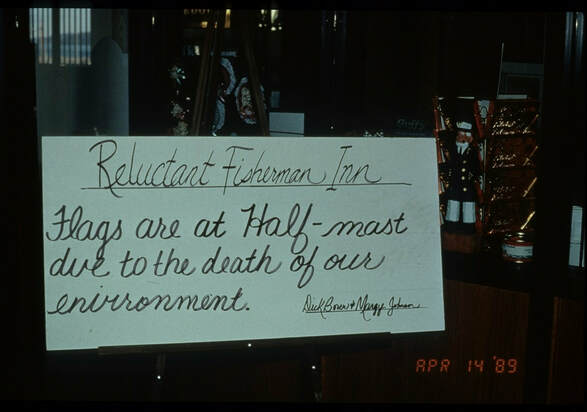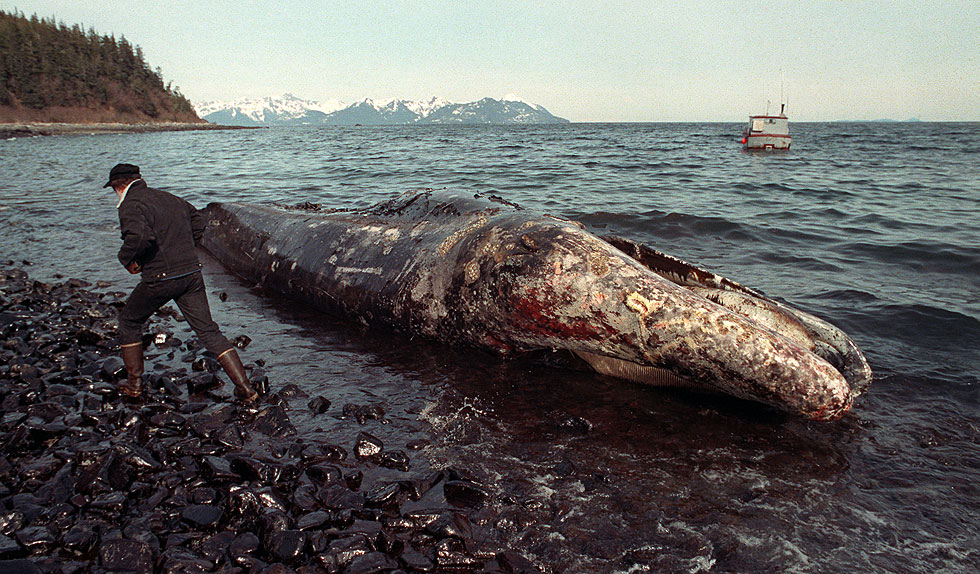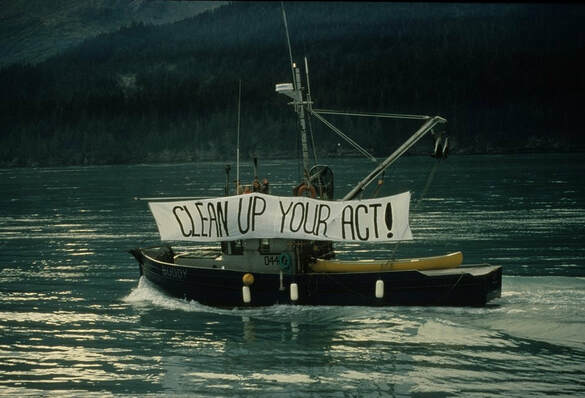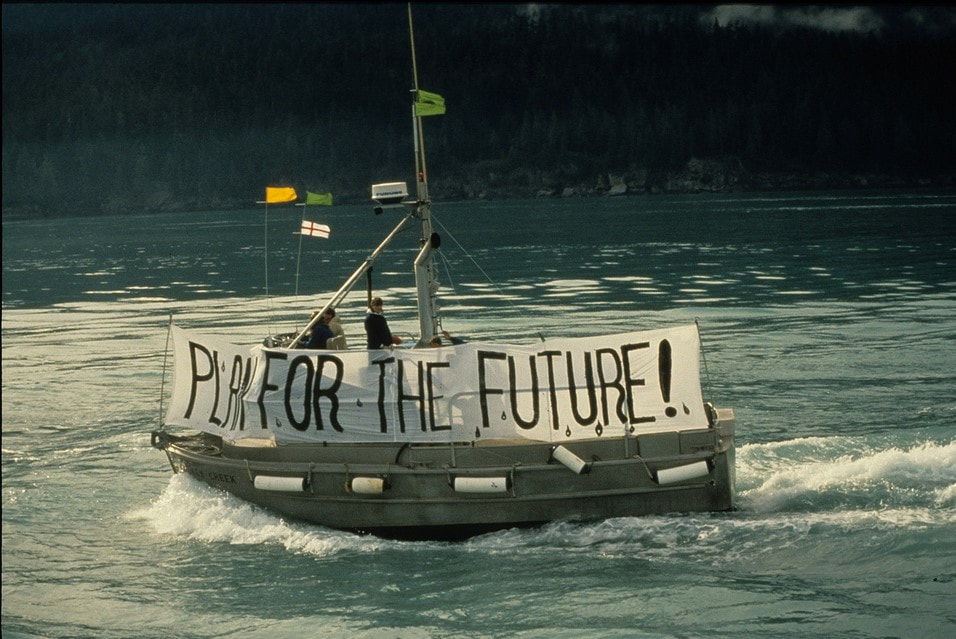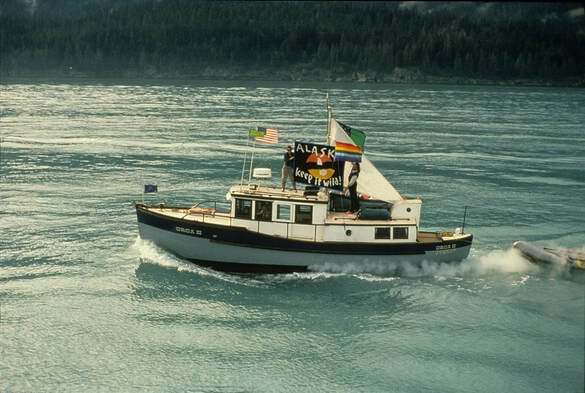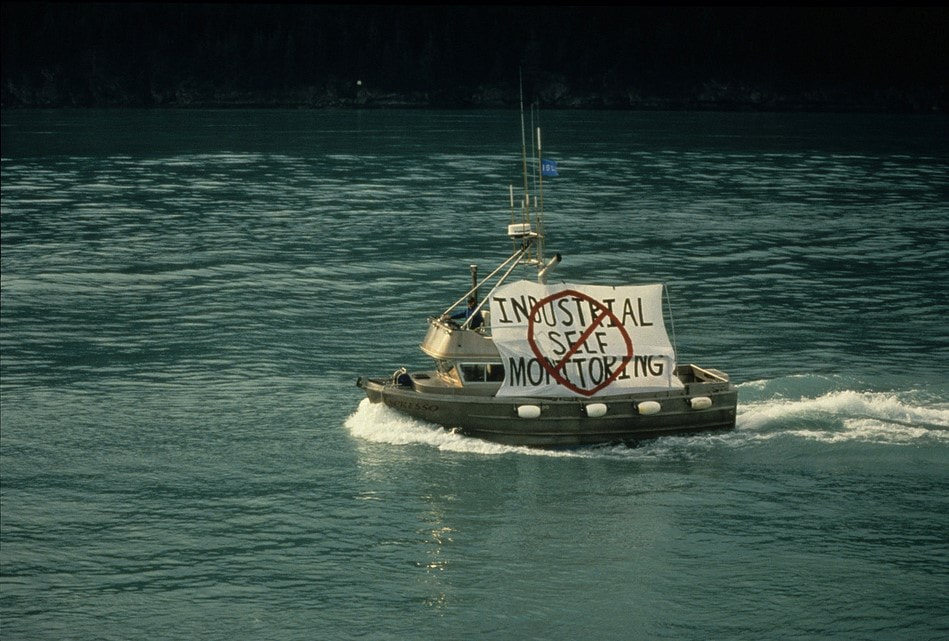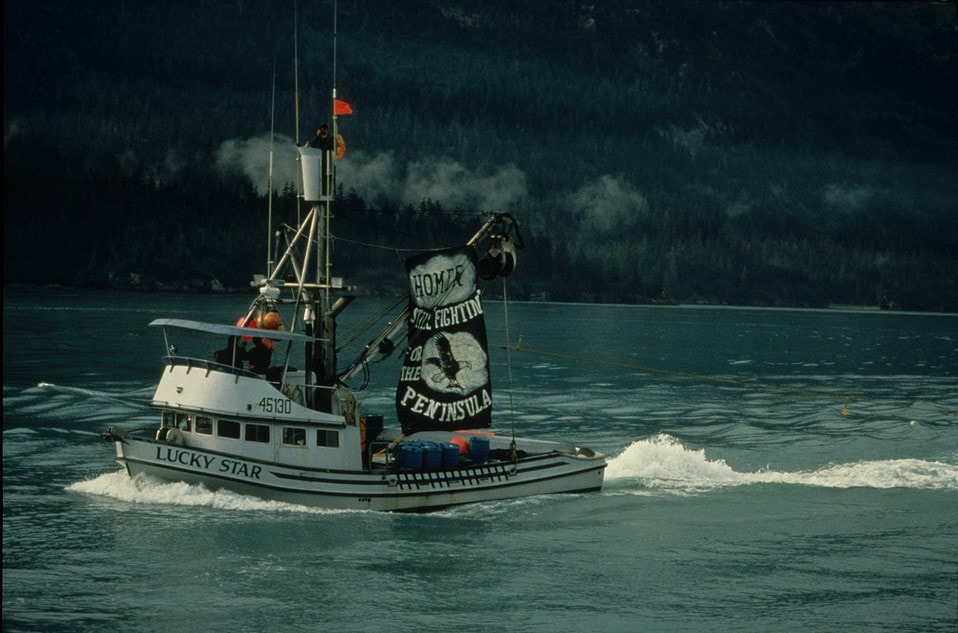economic effects
Other than the operation of the Trans-Alaska pipeline, the principal sources of income in Prince William Sound are commercial fishing and tourism, which the spill disrupted.
Fishing
"The inter-tidal area is a very critical habitat - especially in the spring. We have got herring coming in that are trying to spawn in the shallow water on the kelp. Salmon fry are migrating out. All juvenile stages of fish are extremely sensitive to hydrocarbons because these hydrocarbons are concentrated in their lipids." Riki Ott, April 1989, US Congress Testimony. |
The spill destroyed billions of fish eggs. Commercial fishing declined by 75% the first year following. Subsequent generations continued to be affected by the lingering oil in their habitat.
Tourism
The impact on recreational fishing and other tourism caused losses of $3 billion. Over 26,000 jobs were lost. In addition to the economic loss, fishing boat operators, fly-fishing tour guides, hotel and food industry workers, and many others experienced profound social problems.
"Social and psychological effects on the region’s 25,000 residents were enormous – stress disorders, crime rates, anger and distrust of the government and industry, uncertainty about the future, and general anxiety all soared after the spill. Some of these effects abated somewhat with time, but many persist." - Rick Steiner, March 1993, US Congress Testimony. |
Commercial Boats Protesting
